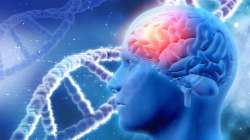Platelets can replicate benefits of exercise in brain, find researchers
Platelets are a promising tool for optimizing cognitive functioning and may even one day be used to treat neurological disorders like Alzheimer's disease.

Platelets, the smallest type of blood cell, have been found to provide a similar benefit to exercise in the brain. Scientists have discovered that platelets contain a protein that, when injected into the brain, can activate the same molecular pathways as exercise. This suggests that platelets have the potential to replicate the effects of exercise on cognitive functions such as learning and memory.
Furthermore, scientists think that platelets could be used as an alternative to exercise for patients with limited mobility or other physical impairments. Platelets are a promising tool for optimizing cognitive functioning and may even one day be used to treat neurological disorders like Alzheimer's disease.
Researchers at the University of Queensland revealed in pre-clinical studies that an injection of a certain blood factor can duplicate the positive effects of exercise on the brain.
Using old mice as a model, a team led by Dr Odette Leiter and Dr Tara Walker from the University of Queensland's Queensland Brain Institute revealed that platelets, the tiny blood cells essential for blood clotting, release a protein that rejuvenates neurons in a manner comparable to physical activity.
“We know exercise increases production of new neurons in the hippocampus, the part of the brain important for learning and memory, but the mechanism hasn’t been clear,” Dr Leiter said.
“Our previous research has shown platelets are involved, but this study shows platelets are required for this effect in the aged mice.”
The researchers focused on exercises, the biological compounds released into the bloodstream during exercise, which are believed to stimulate the exercise-induced response in the brain.
“We discovered that the exerkine CXCL4/Platelet factor 4 or PF4, which is released from platelets after exercise, results in regenerative and cognitive improvements when injected into aged mice,” Dr Leiter said.
Dr Walker said the findings have significant implications for the development of drug interventions.
“For a lot of people with health conditions, mobility issues or of advanced age, exercise isn’t possible, so pharmacological intervention is an important area of research,” she said.
“We can now target platelets to promote neurogenesis, enhance cognition and counteract age-related cognitive decline.”
The researchers said the next step is to test the response in Alzheimer diseased mice, before moving towards human trials.
“It’s important to note this is not a replacement for exercise,” Dr Walker said.
“But it could help the very elderly or someone who has had a brain injury or stroke to improve cognition.”
(With ANi Inputs)